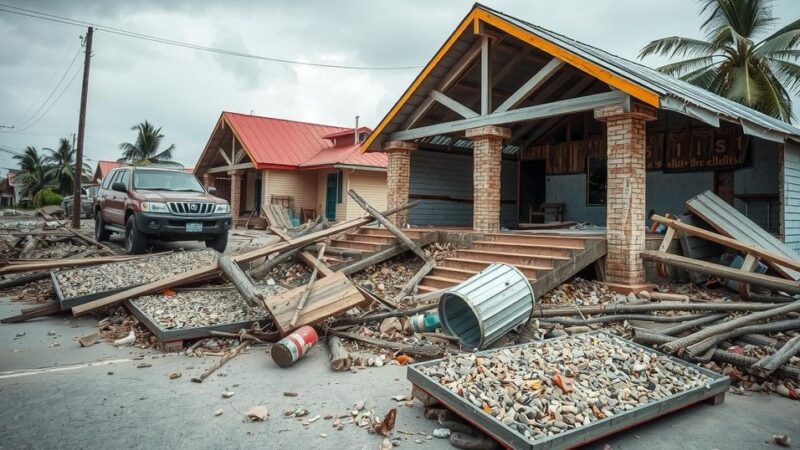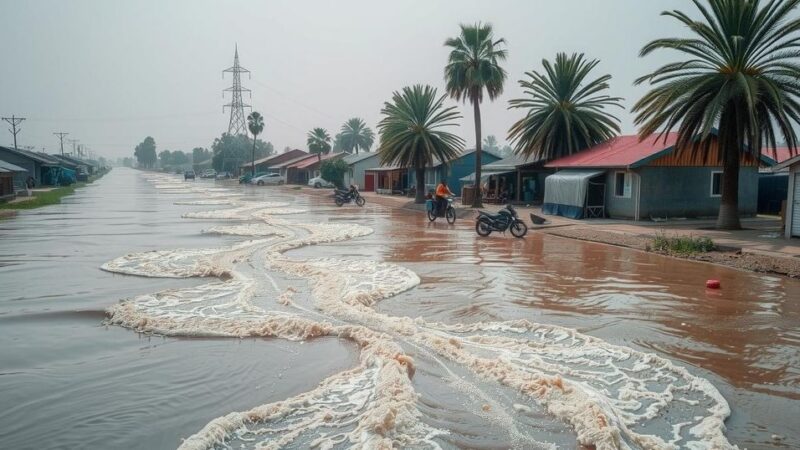The year 2024 highlights the severe impacts of climate change through unprecedented natural disasters and extreme weather events, urging immediate action from governments and individuals. With the Earth’s average temperature rising significantly, reports indicate thousands of deaths attributable to heatwaves and various weather-related calamities. The situation emphasizes the urgent need for global cooperation to implement sustainable solutions and reduce greenhouse gas emissions, ensuring the planet remains livable for future generations.
The year 2024 serves as a critical reminder of the escalating impacts of climate change, pressing governments, decision-makers, and individuals alike to reassess their roles and responsibilities. Climate change, characterized by long-term alterations in weather patterns primarily driven by human activity since the 1800s, has manifested in severe heatwaves, natural disasters, and extreme weather conditions around the globe this year. With the Earth’s average temperature having risen by 1.2 degrees Celsius, experts warn that we must limit the temperature increase to no more than 1.5 degrees Celsius to avoid catastrophic environmental consequences.
The repercussions of climate change were starkly visible in 2024, as the world experienced devastating natural calamities. This year, the Atlantic hurricane season recorded 18 named storms, including 11 hurricanes, claiming over 330 lives and causing extensive damage exceeding hundreds of billions of dollars. In Papua New Guinea, an earthquake and subsequent landslides resulted in more than 670 fatalities. Meanwhile, heavy rainfall in Southern Brazil caused floods and landslides that killed nearly 60 individuals and left hundreds missing. Similarly, incidents in Afghanistan, Pakistan, southern India, and Europe highlighted the pervasive impact of climate change on human lives and the environment.
As temperatures soared globally, the summer of 2024 was marked by severe heatwaves that resulted in thousands of deaths. Notable reports indicate that India alone recorded over 700 heat-related fatalities, while extreme conditions in Saudi Arabia during the Hajj pilgrimage led to over 1,300 deaths. The World Meteorological Organization registered a record-high global mean surface air temperature of 1.54 degrees Celsius above pre-industrial levels. Countries across Asia, Africa, and Europe reported escalating cases of heat-related illnesses, underscoring a widespread public health crisis exacerbated by climate change and the El Niño phenomenon.
The mounting death toll and destruction from direct and indirect climate impacts emphasize the imperative for immediate action. The situation in 2024 is a profound wake-up call for collective global efforts to confront climate change. It necessitates robust environmental policies, a shift to renewable energy sources, and significant reductions in greenhouse gas emissions. While such measures may require extensive investment, the urgent need for sustainable practices and innovative technologies to address our carbon footprint cannot be underestimated. A future without decisive action risks rendering our planet uninhabitable for future generations. Every life lost and every event experienced due to climate change matters. Every individual action contributes significantly to the broader struggle against this existential challenge.
Climate change has increasingly become a focal point of international concern, particularly as its ramifications have intensified over recent years. The phenomenon entails long-term alterations in climate patterns, predominantly attributed to human activities such as fossil fuel combustion. The urgency of this issue has prompted global initiatives aimed at reducing greenhouse gas emissions and implementing sustainable practices to mitigate its effects. With predictions suggesting potential temperature increases of up to 3.1 degrees Celsius by the century’s end, immediate action from governments, policymakers, and individuals is critical to safeguarding the planet’s future.
The events of 2024 underline the critical need for a coordinated global response to climate change. The alarming statistics on natural disasters and related health crises highlight that the time for action is now. Governments must enforce stricter environmental regulations, pivot towards renewable energy, and take decisive steps to reduce carbon emissions. Individual actions also bear significance in this global fight. Without concerted effort, the consequences of climate change may render our planet uninhabitable for future generations, indicating a pressing obligation to act responsibly and sustainably today.
Original Source: www.wionews.com







